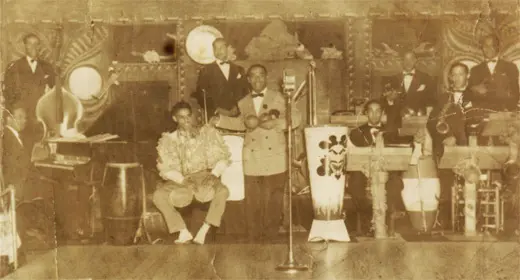Banging the Bongos – Daniel Garcia’s Father
Born on August 23, 1915, legendary singer Graciela grew up in the predominately black, musically rich Jesús María section of Havana, Cuba. She began her illustrious singing career at age 17 when she joined the all-female, “novelty” band Orquestra Anacaona where she sang and played claves. She and the group’s other members pioneered the opening and expanding of the role of women singers and musicians in Cuba. In 1941 she joined Trio Garcia, a group that sang regularly on the radio.
1943 was a pivotal year for Graciela and Afro-Cuban music. At the request of her brother-in-law Mario Bauzá, she came to New York City to temporarily replace her foster brother, Francisco “Machito” Grillo, as the band’s lead si nger during his stint in the US army. Although Machito was discharged from the army in less than a year due to an injury, Graciela remained one of the group s lead singers.

1943 also marked the year that Bauzá composed Tanga, which many music historians consider the first true marriage of Afro-Cuban rhythms and Jazz. This tune along with Graciela’s husky voice, clear diction and sensuous vocal styling on Si, Si, No, No and ¡Ay José! helped birth and shape the Cubop and Mambo eras.
In 2001 Pérez received the International Latin Music Hall of Fame’s Lifetime Achievement Award. Four years later she and legendary percussionist Candido Camero were nominated for Best Traditional Tropical Latin Album at the 47th Annual GRAMMY® Awards for their critically acclaimed project, Inolvidable. Like many women of her generation, Graciela has contributed greatly to her art but remains largely unrecognized. CCCADI is pleased to honor one of Afro-Cuban jazz’s pioneers and living legends whose tantalizing personality and voice has bridged cultures and musical genres.







